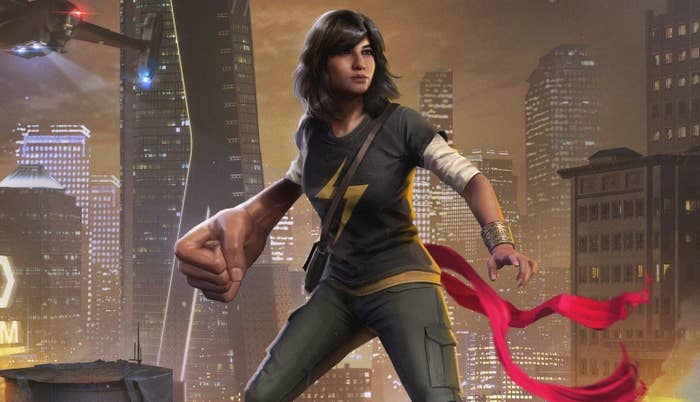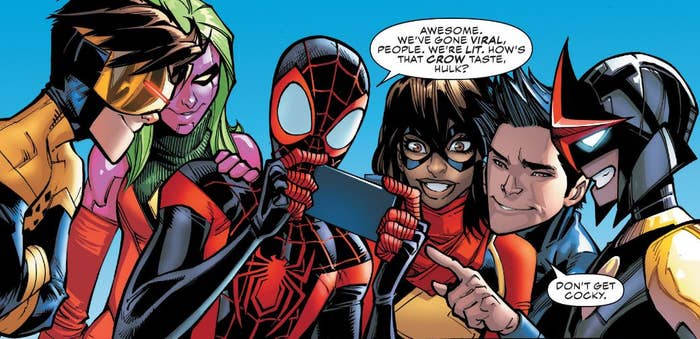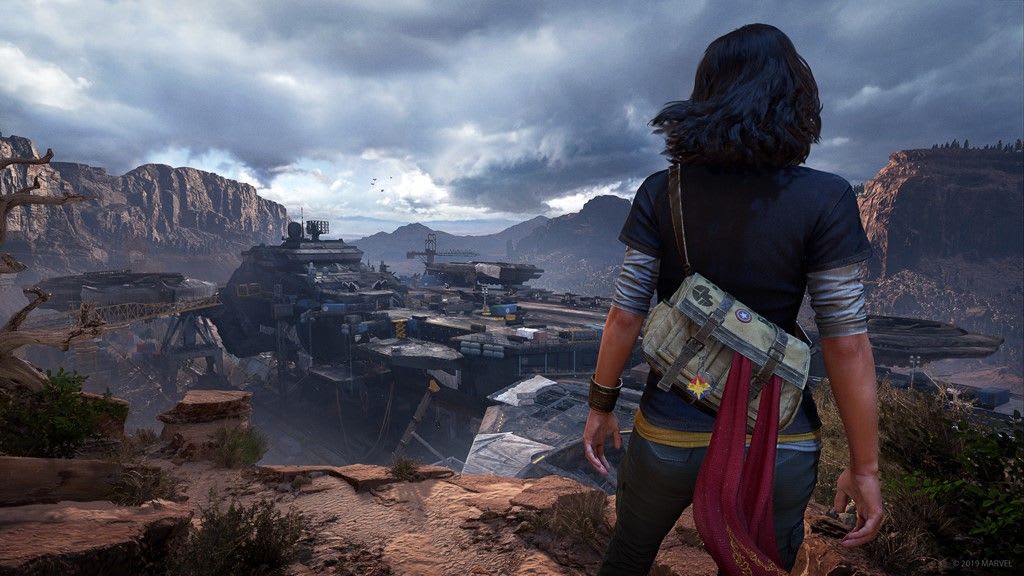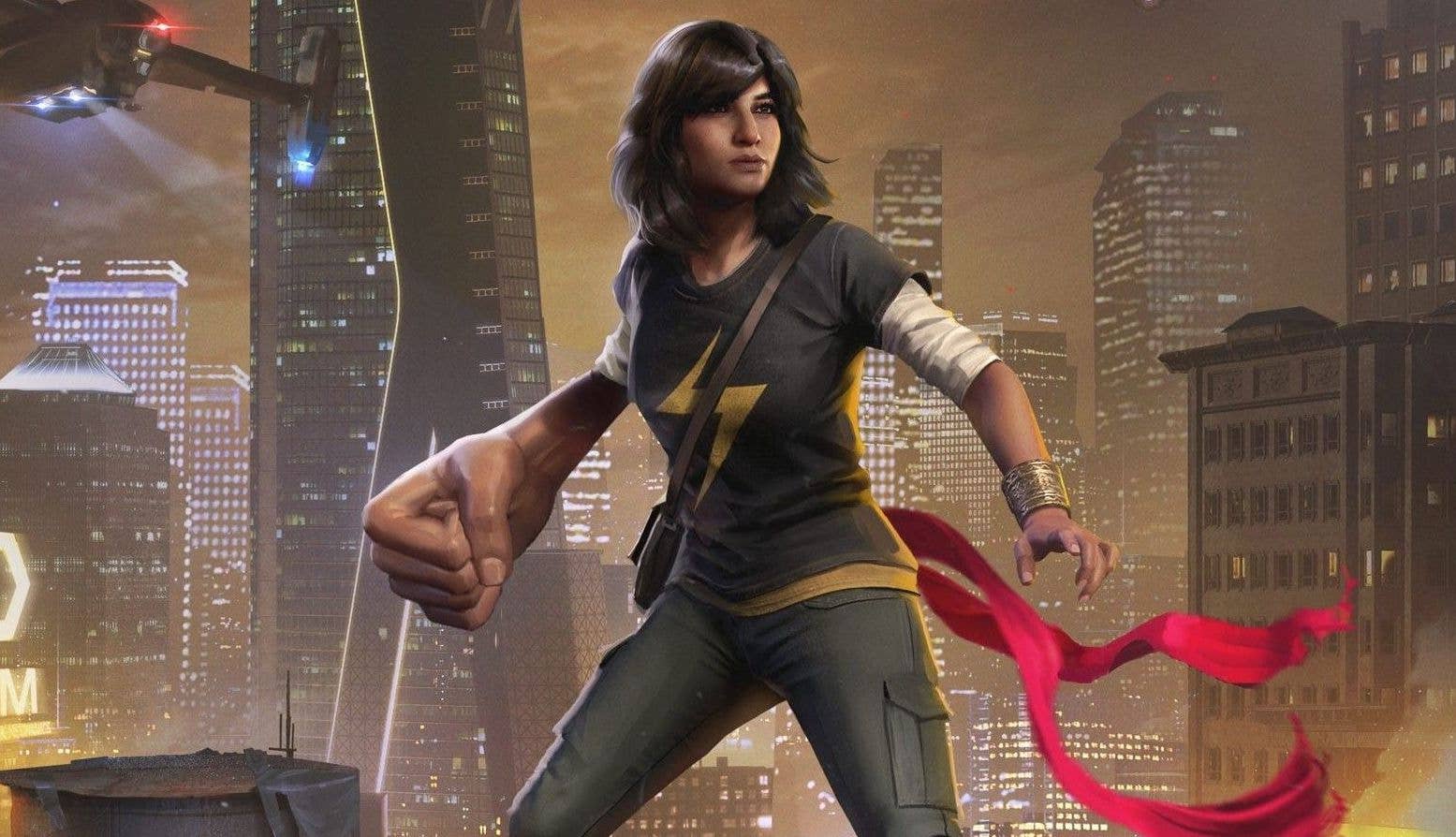
When Sandra Saad auditioned to play Ms. Marvel in Marvel's Avengers, the studio changed the names on her script, so she wouldn't know the character's identity; she didn't even know she was auditioning for a superhero video game. But when she finally learned who she would be playing, Saad went into research mode. She bought a ton of comic books and learned everything she could about Kamala Khan, Marvel's first Muslim superhero to headline her own series.
"I am Egyptian [American], but I am first generation," said Saad in a Zoom interview with Complex, "and a lot of the issues that Kamala runs into in the game, I ran into as well. It was very easy to bounce off my own experiences."
Marvel has long prided itself on its progressive, forward-thinking stances. The X-Men, for example, has frequently been interpreted as an allegory for the Civil Rights Movement. Notable storylines have wrestled with the morality of pseudoscience which can be paralleled to everything from eugenics studies to gay conversion therapy. Marvel addresses contemporary trends, from the prevalence of social media to the loss of personal privacy to the meaning of patriotism.
But in the past decade, Marvel has taken the admirable, additional step of putting its stated beliefs into concrete practice--by creating new, minority characters to fill prominent superhero roles. And they've managed to do this rather seamlessly, not by reframing or reinventing Peter Parker as an ethnic minority, but rather, by making "Spider-Man" an alias that can encompass multiple characters behind the mask. It's why we now have Miles Morales as Spider-Man, Riri Williams as Ironheart, Amadeus Cho as the Totally Awesome Hulk.

Kamala Khan joined this wave of up-and-comers in 2013. The character, a first-generation, Pakistani-American teenager from Jersey City, was created by Sana Amanat, herself a 1st generation, Pakistani-American from suburban New Jersey. Khan's primary superpower is her Polymorph abilities, which allow her to change and manipulate her body to be small, big, or stretchy. These abilities dovetail with the character's personal arc, of a girl who is trying to find her own path, while simultaneously bending and contorting to the expectations of others.
"There's a bit of a disconnect," says Saad. "Were Kamala to become a parent? She might understand her daughter's interest in the Avengers. But [her father] Yusuf doesn't because he didn't grow up with it. There's a give-and-take between parent and child."
As someone who's decided to main Ms. Marvel in the new video game, I'm struck by how refreshing it is to see a new face alongside the traditional heroes we know and love. It helps that her superpowers are so visually appealing; a massive fist reads a lot better on screen than a laser or a heat-seeking missile. Khan's in-game strength is as a damage dealer, and her healing ability allows her to hang back and recharge her teammates before rejoining the fray. It's a power trip to rip apart a massive bot with her bare hands, as I did in the clip below.
I'm also struck—as a person of color—by how her ethnic and religious identity are worked into her character without wholly defining her. When Khan leaves Jersey City to seek out the Hulk, she ditches a women's mosque retreat, and it is framed as a single cultural activity in a larger, fuller life. When she describes her burkini to Tony Stark, it's given incidental attention, rather than being the focal point of the entire scene. This is diversity, done properly—integration via mundanity, that shows rather than tells and normalizes rather than exoticizes.
This approach extends to her family as well. Her father, rather than being a one-dimensional, domineering presence—as is common in many "trapped between two worlds" stories—is a warm, loving man. He is flawed, but he is outwardly proud and supportive of his daughter and her interests, even if he doesn't understand them or is bewildered by them.

"We see [Kamala Khan] as a Muslim Pakistani in a way that's real, because she was created by a Muslim Paskistani," says Saad. "So you're not going to see her in this odd way, where [the storyteller] is trying to write the narrative for something that they are not… It's really nice to see a first-generation American portrayed in such a normal way, where we're not trying to make some huge 'statement.'"
As for the character's personality, Khan is an unabashed fangirl, nerding out at every opportunity over the Avengers and their historical exploits. It leads to some cringe-worthy scenes—perhaps because we can see the most embarrassing parts of ourselves in Khan's enthusiasm.
Saad leaned into that awkwardness during her performance; she sees power and independence in a girl who knows what she likes and isn't ashamed of it. Saad also improvised her halting interactions with Bruce Banner near the beginning of the game. Creating someone who is decidedly uncool, with no "off button," was a risky choice that paid off and made this character more honest.
Sandra Saad is also a musician; you can check out her Instagram to learn more. Her performance as Kamala Khan is her first motion capture role; up until now, she's been a voiceover performer. But it's appropriate and fortuitous that an Egyptian American woman with first-generation roots would be the one to give Khan both movement and voice. She is one of the first women to portray this character, who is currently on the verge of a mainstream breakout. A Disney+ show, featuring Kamala Khan in the Marvel Cinematic Universe, is currently in the works and will continue the character's meteoric rise in the public eye.
"Representation is really important, and Marvel does a great job of that," says Saad. "They do it in such a way where people can see themselves portrayed not just in a real light, but in a powerful light."
It's been an honor to play a role like that, which empowers a young, female person of color," continues Saad. "The message of the Avengers—to embrace your own powers—is about embracing who you are, as you are. I hope that anyone who plays the game can take that message from it."


